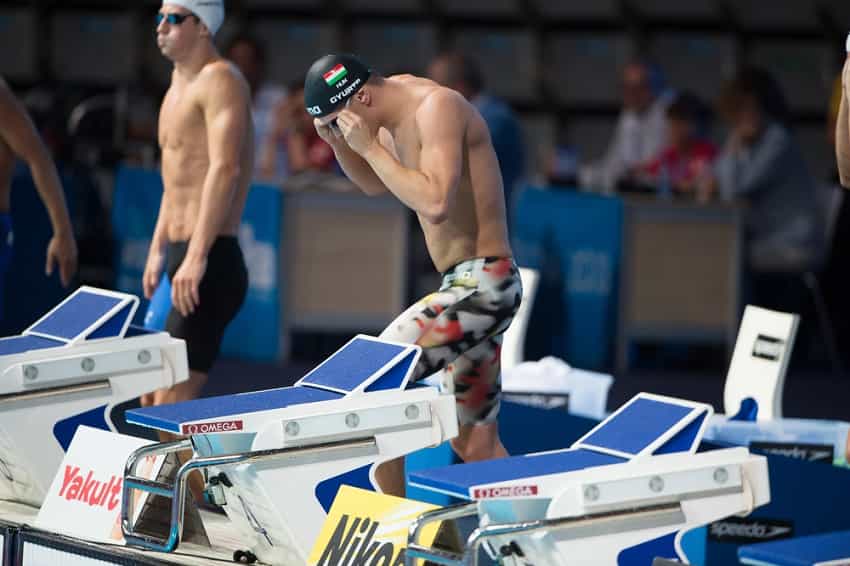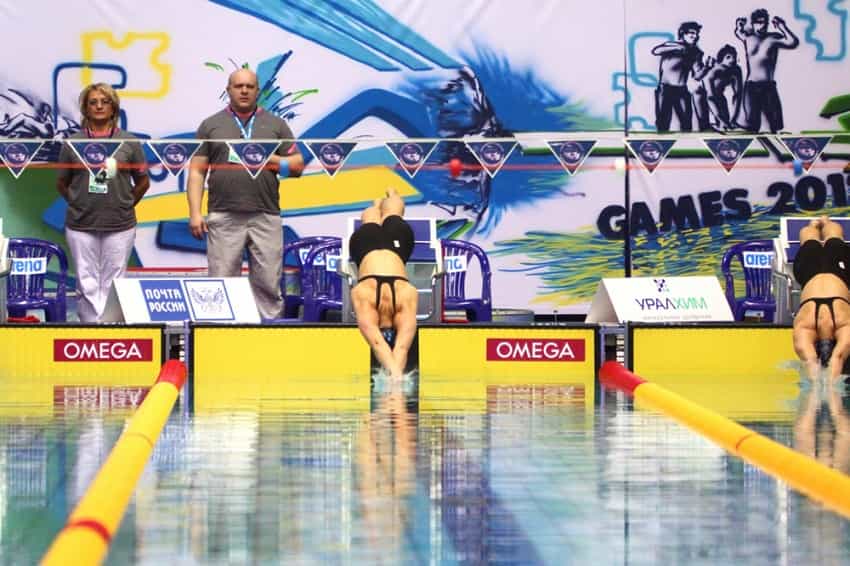There are a lot of benefits to spending a few minutes a day on your mental training. Besides that whole swimming faster aspect, here is the next sweetest thing that happens.
A lot of awesome stuff happens on the way to swimming excellence, whatever that means for you in your own particular case.
Overcoming failures and setbacks, learning how to plan to accomplish something big, managing your thoughts and self-talk and more all happen when you master the pool and your mental training.
But there is one other thing that happens along the way that doesn’t really get much attention. And it’s something insanely critical to performance, and yet, we don’t really stop to think about it. (We’re too busy focused on our goals and the process, after all.)
It’s increased self-awareness.
Why does it self-awareness matter so much to your success in the water? Because far too many swimmers live in a perpetual state of denial:
- They think hard work is overrated and only for less talented swimmers.
- They make predictions and goals that don’t nearly reflect their training.
- They think brief spurts of focus in practice will yield out-sized results.
When you inject some regular mental training into your swimming one of the main side-effects is self-awareness.
Here are just some of the fascinating things that happen next:
We start plotting out goals that are challenging while also being reasonable.
Wild expectations are simultaneously the best and the worst. When we dream big we envision ourselves pushing the limits of what is possible. We view a future that we control where we dominate.
On the other hand, when we fantasize it’s easy to fall prey to creating unrealistic expectations. I see it all the time (and have been guilty of it on more than a few occasions): If I go to practice every day for the next two weeks I can totally drop 5 seconds in my 50 freestyle!
Having better levels of self-awareness means we can create awesome goals that are doable, which removes the disheartened crash that happens when our unrealistic goals don’t come to pass overnight.
Helps us build more accurate roadmaps of progression.
Along with being able to craft smarter and awesomer goals self-awareness gives us a better indication of how long a goal will take to accomplish, and how much work is involved.
There are no surprises. (Well, fewer, at least.)
When we know how we progress, how long it will take to see the improvement we want, and what kind of work is needed, we are more likely to stay on track and more likely to hit that target at the end of the season.
We are more forgiving of our mistakes.
All-or-nothing permeates the mindsets of swimmers and non-swimmers alike. Things are expected to go perfectly or all is irretrievably lost.
When we become self-aware, we understand that setbacks, failures and slip-ups are going to happen, and we are humble enough to accept them as part of the process. The occasional screw-up is okay and not fatal.
This isn’t a blind willingness to slack off, it’s being humble in the face of a setback, forgiving yourself quickly, and getting right back on track without having to spiral into a cascade of missed practices and self-pity.
We stop banging our heads against things that aren’t working.
It can be a tough pill to swallow that we aren’t exceptionally good at something. And so we stubbornly and mindlessly bang away at it, sacrificing time and energy that could be better spent on our strengths.
Self-awareness shines a spotlight on the things you excel at. It shows you what flat-out works.
And once you have this knowledge and acceptance that you will improve faster by infecting the rest of your swimming and life with the things that work improvement starts to happen really, really fast.
There is no shame in wanting to improve your weaknesses or wanting to work on the things that you despise—but if you are trying and trying and trying and not getting anywhere have the humility to grasp that there are better (and less frustrating!) ways for you to do things.
The Takeaway
It’s hard to be objective about ourselves and our swimming. It’s something I struggle with regularly. We simply have accumulated too many cognitive biases to dispassionately move past them.
But you can make some forward movement on increasing your self-awareness so that you make better goals, creating realistic plans of action, and stay on track for longer in the pool.
Up Next:
- When Things Go Sideways, Top Swimmers Rely on Mental Training. The fastest swimmers are the most resilient swimmers. Here’s how spending a few minutes a day getting your mind right can help you stay calm and focused in the face of adversity.
- At What Age Should Swimmers Start Mental Training? Coaches and elite swimmers talk about how the difference is often mental when it comes to performance. Here are some thoughts and suggestions for when swimmers should start dialing in the mental side of the sport.















